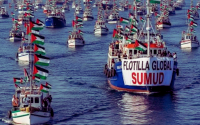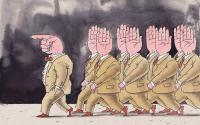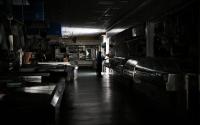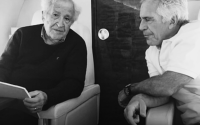The last-minute haggling at the Summit Of The Americas in Argentina follows US-led proposals to create a trade zone that would open up new markets for the US in Latin America and the Caribbean.
The key opponent to establishing a Free Trade Area of the Americas (FTAA) is Venezuelan leader Hugo Chavez, who came to the summit vowing to "bury" FTAA.
However, the US faces opposition from several Latin American countries – including host nation Argentina – who say the plan could damage their economies.
A compromise was still being sought behind closed doors last night as US President George W Bush left the summit – which has been overshadowed by anti-US protests – for a trip to Brazil.
The US says the FTAA would open up new markets for Americans and bring wealth and jobs to Latin America.
A collective nod for free trade would help bolster President Bush's standing across Latin America, a region largely distrustful of US-backed, free-market policies which many say have done little to alleviate poverty.
But the Venezuelan leader has been a thorn in the US's side throughout the talks. On Friday, Chavez rallied 25,000 anti-Bush, anti-free trade protesters with promises to bury the FTAA idea.
The protest was headlined by Chavez, Argentine soccer legend Diego Maradona and Bolivian presidential hopeful Evo Morales.
Argentina is a poignant reminder of the failure of free-market economics in Latin America. It was the model student of the so-called "Washington consensus" in the 1990s before its economy collapsed in 2001, leading to debt default and a bruising currency devaluation. That makes the pro-free trade argument difficult to sell on the streets of Mar Del Plata.
"We listened to Washington's recipes for our economies for years and what did it bring us? More poverty and more unemployment. Free trade won't be any different," said Daniel Rodriguez, a 34-year-old protester.
But hours later, a separate anti-US demonstration turned violent, streets from where Bush and the 33 other leaders were meeting.
In a two-hour stand-off with rows of riot police, some 200 protesters set fire to a bank and broke shop windows along a major boule vard in this Argentine beach resort.
Officials said 64 people were arrested but no major injuries were reported.
"This is just a disaster," said Lia Zunino, a 65-year-old auto parts shop owner, as he surveyed the damage and the workers sweeping up glass and repairing shop-fronts.
Along with Chavez, leaders from Latin America's big agricultural economies, Brazil and Argentina, have also voiced concern over the FTAA, complaining about US farm subsidies. But Brazilian President Luiz Inácio Lula da Silva signalled that he isn't opposed to the free trade area.
"Free trade is very important if we respect equality among nations," Lula told reporters, but he added that it was "not opportune" to discuss the FTAA before a crucial World Trade Organisation meeting next month, where subsidies would be the top issue.
The Mar Del Plata Declaration could include a date in 2006 to restart FTAA talks.
"I hope we manage to align 29 of the 34 countries in favour of trade to go back to the table and work on an accord that is unique," declared Mexico's President Vicente Fox.
Canadian Prime Minister Paul Martin, however, told the assembled leaders that the Americas had little time to lose on free trade as Asian giants China and India raced ahead with "growth rates that have far outstripped ours in the Americas".






